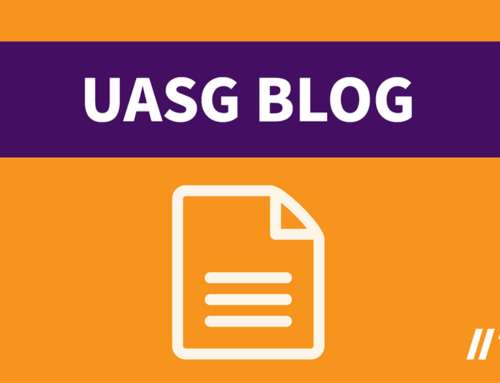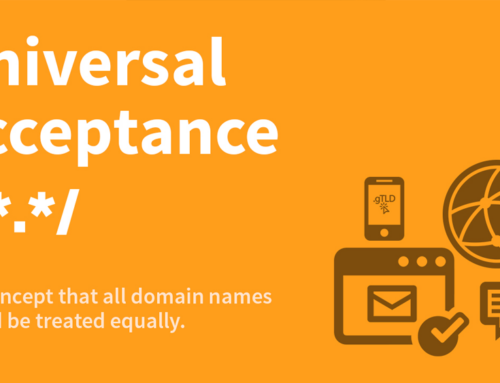New Reports Show Achievement, but Still More Opportunity to Become UA-Ready
Today, the Universal Acceptance Steering Group (UASG) released two reports aimed at measuring the state of popular browsers and websites and their ability to handle all domain names – including new, longer, or non-Latin top-level domain names (TLDs) or non-Latin email addresses.
According to the reports, while there is some achievement of Universal Acceptance (or UA – making sure all email addresses and all domain names can be successfully used online), not all organizations have yet to fully seize the opportunity to attract an estimated one billion new users to the Internet.
Since 2010, the common infrastructure of the Internet has evolved, allowing for longer TLDs (and email address based on those TLDs) and for domains that represent geographically diverse local scripts (e.g., 普遍接受-测试.世界, ua-test.世界,etc.). These new domain names allow people to choose an online name that best reflects their own sense of identity. And yet, the software development community still has work to do to apply these Internet standards to their online systems.
The “Evaluation of Websites for Acceptance of a Variety of Email Addresses” report (UASG017) found that of the 749 websites tested, just 7 percent passed all the test cases, which included attempts to register seven diverse types of email addresses – both in non-English language and those with top-level domains longer than the traditional two or three characters.
After testing 17 URLs in eight browsers on six different operating systems, “The Universal Acceptance of Popular Browsers” report (UASG016) found only one – Internet Explorer – was fully UA-compliant. The majority had challenges with non-English domain names. In these cases, the browser either displayed search results instead of loading the expected web page or did not render URLs properly in the tab title bar.
The UASG’s goal with the reports is to educate the software development community on the state of Universal Acceptance, and highlight specific areas where companies can improve and become UA-compliant. Businesses and governments – or any organization with an online presence – have an interest in becoming UA-compliant, as it significantly opens access to worldwide users who have yet to meaningfully leverage Internet participation. UA opens a truly multilingual Internet, fosters competition, and provides new and meaningful options for online identities.
The UASG is an Internet community initiative formed to raise awareness of Universal Acceptance and to encourage developers to get their applications compliant with the latest technical standards.





